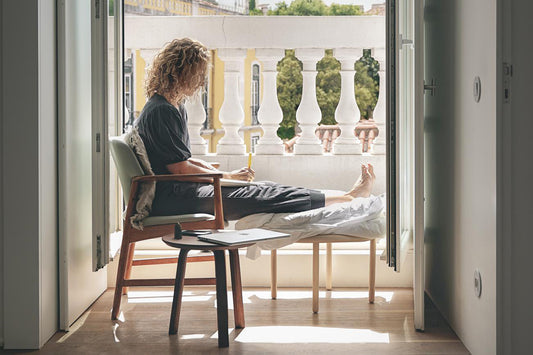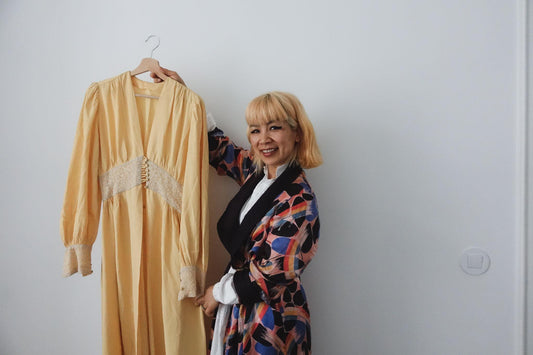Cherie, a sign language interpreter from Seattle, stayed with us while she was taking a Portuguese refresher course. She was about to go buy some gifts when we dropped by her apartment for a chat.
"As an American... coming here, I think there's something easier... you don't have to always know everything. Like if you're going out, it's ok if you just know you're going... somewhere. But Americans, they wanna know everything, and be in charge of things. So if you tell them you're going out, they keep asking, "Where are we going?", "When are we leaving?" And the Portuguese... don't. And we talked about that in class.
Another topic I found interesting about the Portuguese, and we also talked about it... sometimes, the difficulty of making a decision?
Being here again after 10 years, I've thought about whether I could call Lisbon home, many times... I think I could. But I was born and raised in Seattle and I don't know that I could leave my trees and mountains. But I think about that every day I walk in the city, really.
And this time, I didn't find myself missing Seattle so much. One reason: Skype is so easy now, the internet is good, I talk to my partner, it's like he's in the same room with me. One day, I was making dinner, he was making lunch at the same time...
But, you know, there's this restaurant I go to four times a week. That, I miss. But I checked their Instagram, it's still there.
It's so funny, I was wondering, "What am I gonna post on Instagram?", but like, what do I wanna post, not what I would like people to see or to read. Or am I gonna frame it this way or that way, or move the background but now it's too white... it starts making me crazy.
Everything is so curated. We live in a curated world. Curated means someone else is making some kind of decision for you and maybe if you like their kinds of decisions, that will work well and save you some time but sometimes... I think it's hard to find space for, "What do I think?", "What do I think about this thing?"
It's hard to walk down the street anymore without thinking, "That would look nice on Instagram." You have your phone in your pocket and you're thinking, "How do I put it aside?" and "What do I wanna do today?... Where do I wanna go?... What do I think?!"
There's the idea that deaf people don't have as rich or full a language as people who speak. And particularly people who speak English, because English speakers are the people with the biggest heads, the "Doesn't everybody speak English?" mentality. But when you interpret sign language, hand gestures can be only half of what's being communicated. The whole body is part of the grammar.
Face movements, eyebrow movements... Sometimes, it's related to time: if the shoulder comes up, it means something you're saying is more recent than if the shoulder is down... An eyebrow going up can be a who/what/where question and if it goes down, it's a yes/no question.
My favourite word in Portuguese is... 'abóbora' [pumpkin]. It's a word that sounds like what it really is, what the object looks like.
But how about you? Can you tell me something about working here?
Being here, I see, again and again, the idea of this being a second home, or of making people feel at home. Why is that important for you?"




